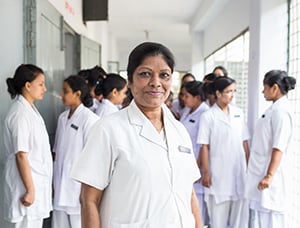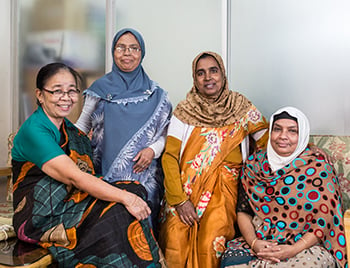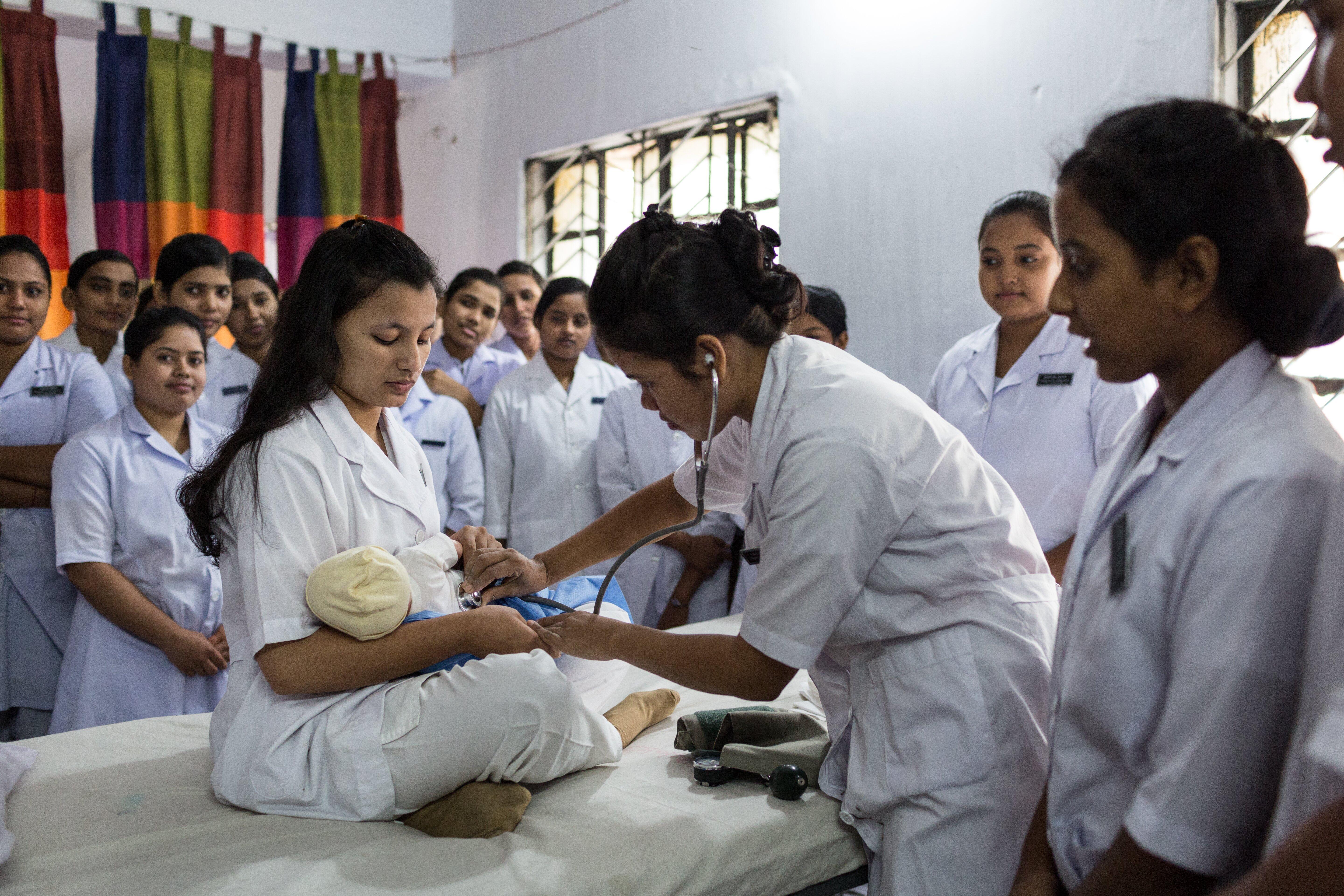DINAJPUR, Bangladesh - The stairwells of the Dinajpur Nursing Institute are bustling with midwives-in-training hurrying to their classes in this northern district of Bangladesh. They are among more than a thousand young women currently enrolled in a new UNFPA-supported programme that will see professionally trained midwives enter the health care system for the first time in 2015.
Though Bangladesh has made great strides in its campaign to reduce maternal and infant deaths - the maternal mortality rate has dropped more than 40 per cent in the last decade - the current lack of highly educated midwives in the national health care system has slowed progress.
“As of now, regular nurses are delivering our babies, but they have many other duties and are not specialists,” says Sarmina Sattar, a nursing instructor and midwife trainer at the Dinajpur Nursing Institute, “We need specialists to deliver much more skilled treatment because of their advanced knowledge.”
Recognizing the national deficiency, the government of Bangladesh, with support from UNFPA, began offering a three-year specialized midwifery course in 2012. Since its inception, more than 1,100 students have enrolled in the programme, reports the Directorate of Nursing Services.

Bringing midwives where they are needed most
One of the primary challenges to providing safe birthing conditions in Bangladesh is the fact that roughly 75 per cent of the population lives outside the country’s few major cities.
“The people of Bangladesh need services at the community level,” explains Salma Khatun, an assistant professor of reproductive health who has been deputized by the government’s Directorate of Nursing Services. “Many do not have the money to travel to [major] health centres. Having midwives available at the grassroots level will make services easily available.”
Upon graduation, the newly trained midwifery specialists expect to receive remote postings, often far-removed from the comforts of the big city.
“When I complete my training, I will go where the government assigns me,” says Selina Akter, a twenty-year-old student currently enrolled in the second year of the programme. “I am confident in the skills I am learning and I want to use them to serve the people of my country, especially the poor.”

Acting decisively to save lives
Beyond providing skilled service where it is needed most, the introduction of midwives into the health care workforce will improve the efficiency of service.
Nurses currently staffing health facilities lack the advanced knowledge to make on-the-spot decisions about how to deal with labour complications and are required to seek the approval of senior doctors before they act. If a woman haemorrhages after birth or needs an emergency Caesarian section (C-section), any delay could cost the mother or baby their lives.
But midwives learn techniques to largely avoid C-sections. The so-called ‘return on investment’ of a midwife’s training is 1,600 per cent to the C-sections avoided during her professional life.
With their specialized training, midwives will be authorized to act decisively and without oversight.
“Instead of having to wait for a doctor to give permission, midwives will be allowed to make their own decisions. This will make us much more effective than current nurses,” says Ms. Sattar.
The first batch of professional midwives enrolled in the full-time three-year midwifery course will graduate in December 2015. In the meantime, UNFPA is also supporting more than 1,300 existing nurses with an additional six-month midwifery training, to fill the gap as “Certified Midwifes”.
Together with The World Health Organization (WHO), UNFPA is supporting 20 training centres for the Certificate in Midwifery and 27 Institutes for the full direct-entry diploma.
Helping to bridge cultural barriers
Home to a population that is approximately 98 per cent Muslim, Bangladesh’s all-female midwifery workforce will also help to tackle cultural obstacles for women seeking health care.
“Most of the doctors at the rural level are men,” explains Ms. Khatun. Because of strict societal views on male-female interactions, “this can lead to many women not wanting to seek treatment.”
As many Bangladeshis adopt a more modern outlook on health care, the demand for skilled birth attendants is on the rise.
According to Nidha Islam, a medical officer in the Gynaecology ward of the Thakurgaon District Hospital in a neighbouring district, midwives will help significantly to meet these growing needs. “By making decisions quickly based on their professional knowledge, midwives could save lives. We are looking forward to having the help.”



